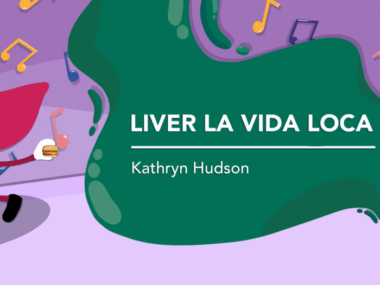Liver medication can be expensive, but it doesn’t have to be
My tips and resources for reducing prescription costs
Written by |

Every month, I receive deliveries of my medications, most of them for my metabolic-associated steatohepatitis (MASH), a fatty liver disease. I probably don’t need to tell most of you how expensive some of these drugs are.
One popular drug used off-label to treat liver disease is the antibiotic Xifaxan (rifaximin). Thanks to it, my liver keeps going and I get to see every sunrise. It works well for me and has minimal side effects, but it’s not cheap, costing up to several thousand dollars a month. I’m incredibly grateful to have Medicare.
My trusty little pill organizer covers one week and has two compartments per day: morning and evening. It helps me track my meds and remember to take them. With MASH, the more the disease progresses, the more medications you tend to need. Don’t even get me started on liver transplant patients and the pharmaceutical cocktails they take daily!
Still, I try not to despair. I’ve learned to be a resourceful little squirrel when it comes to research. I find golden nuggets of wisdom and store them away until I need them. Today, I’m cracking some open for you — squirrel-tested, squirrel-approved. There are programs out there that can help reduce your prescription costs — or even cover them completely.
My tips and resources
When I was a kid, my mother developed a serious heart condition caused by complications from a childhood illness. She’d suffered third-degree burns while climbing onto a gas stove to reach a high cabinet. She accidentally turned the burner on with her foot, and the flames caught her delicate summer dress, leaving her with lifelong scars.
We didn’t know she’d one day need such costly medications. But my resourceful mother — she’s where I get my squirrel genes — never hesitated to find and get help when she needed it.
After countless phone calls and persistence, we finally connected with the manufacturer of a drug she needed. My mother discovered that many pharmaceutical companies offer patient assistance programs that significantly reduce co-pays or even cover the full cost of the medication for qualifying individuals. The representative told us to have her doctor handle the request. Two weeks later, my mother received her $1,800-per-month medication at no cost.
When we’re struggling, especially with medical and financial stress at the same time, we often close ourselves off to help. But being honest with your physician can open doors. Many doctors have access to lists of assistance programs and can have their staff handle the paperwork for you.
Don’t forget your pharmacist! If you’re on Medicare, you may qualify for free medication delivery, which saves money, gas, and hassle — especially if you’re disabled or have limited transportation. Don’t be afraid to say, “I can’t afford this. Is there help available?” Pharmacies can help you sign up for GoodRx, SingleCare, or BuzzRx, all of which offer prescription discounts at thousands of locations.
One last tip: If you don’t ask, you won’t receive. I learned that getting most of my meds delivered often qualifies me for bulk discounts. Drug companies are happy to cut costs when it benefits their bottom line. If buying in volume helps them and you, then take full advantage.
Medicare and Medicaid have been my lifelines. I’ve never had to appeal a prescription denial, and I haven’t had to pay inflated prices for the meds I need to stay alive. I hate seeing others pay full price for something they could get for free or at a deep discount.
My goal with this column isn’t just to entertain you with stories of living with a fatty liver. It’s to help you get the support and resources you deserve. Prescription prices keep rising, and I’ll keep researching ways to save. And I promise, dear reader, I won’t squirrel those tips away for long.
Note: Liver Disease News is strictly a news and information website about the disease. It does not provide medical advice, diagnosis, or treatment. This content is not intended to be a substitute for professional medical advice, diagnosis, or treatment. Always seek the advice of your physician or other qualified health provider with any questions you may have regarding a medical condition. Never disregard professional medical advice or delay in seeking it because of something you have read on this website. The opinions expressed in this column are not those of Liver Disease News or its parent company, Bionews, and are intended to spark discussion about issues pertaining to liver disease.



Kenneth
What is the name or names of the medications that fight Mash?
Kathryn Hudson
I am not a doctor, so therefore I really can't give you medical advice or prescription advice. What I would say to your doctor is that you would like to explore what medications might be beneficial to your liver disease. There are new drugs that come out everyday, and there are new drug trials everyday. If you do a search on Google for drug trials and liver disease, you'll likely come across many with new medications they are waiting to see how well they work with livers. I wish you all the best.